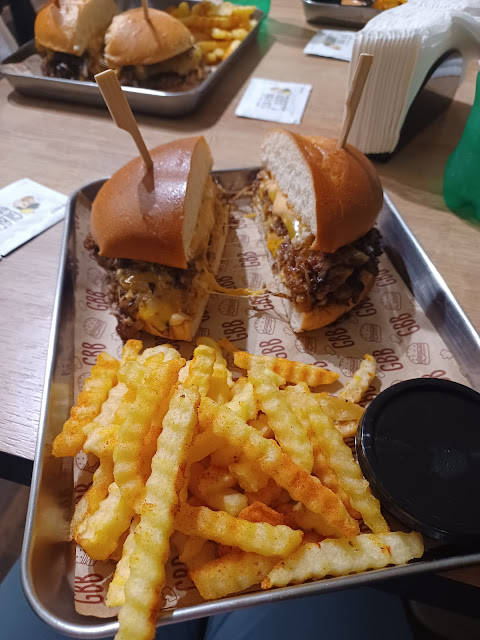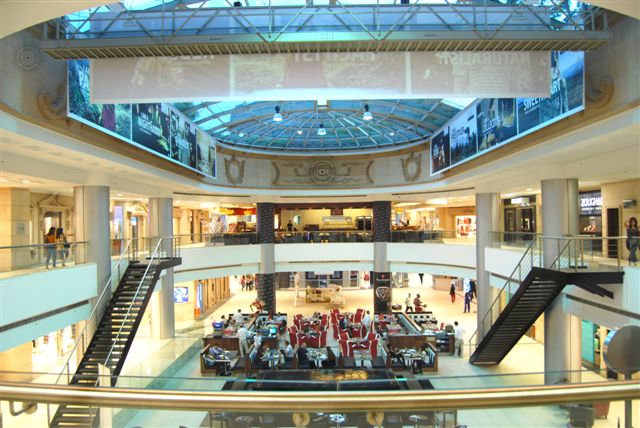"My Big Fat Greek Wedding" Is Back!
When I first watched “My Big Fat Greek Wedding” in 2002, it
was a revelation. I recall how enjoyable my family and I found it, both for its
easy humor and its mirror portrayal of our own lives in the US as
Lebanese-Americans.
Realistically, you could have substituted any Lebanese
family for Toula Portokolas’ boisterous clan, and the storyline would
have been unaltered. The strong matriarch who cunningly bows to her husband’s
traditionally dominant role (“The man is the head, but the woman is the neck.
And she can turn the head anyway she wants”). Big family feasts more
centered on pleasing the eye than sating the stomach. Boys named after their
fathers or grandfathers. The importance of faith and church on Sundays. And of
course, the never-a-dull-moment family chaos contrasted with the relatively mundane
calm of American households.
| Toula's aunt gives her tips for being a lioness in the bedroom (Universal Pictures UK) |
My brothers and I could relate to Toula’s
family on every level. More importantly, our classmates could at long last begin to fathom and
accept our unique family constructs. I now had a reference for
any rituals (i.e., pita bread in my lunchbox) that my peers had heretofore frowned
upon or simply not understood.
Beyond that, MBFGW and particularly Toula (Nia Vardalos) struck
a chord with me was for the accurate depiction of “third culture kids” like me,
children of immigrant parents born in the New Country. Just as Toula, I found
myself perpetually torn between two irreconcilable cultures, two sets of
values, two languages, in brief, two very distinct realities.
My parents were very present in our lives, firm about the
importance of education first and then marriage to someone of the same
heritage. During summer visits to the homeland, my grandmother would implore me
to have eyes for Lebanese men and not the “foreigners” who dotted my life
abroad.
| Marriage is THE milestone of all milestones in our Mediterranean culture |
In all frankness, I decided in my teenage years that I
would marry a Lebanese boy, because he was likely to “get” my
upbringing. I wouldn’t have to explain my oath of chastity, or my modest way of dressing, or not staying out too late. I wouldn’t need to act as a translator between him and my family yapping away in Arabic. He would readily embrace me
as I was, never questioning my worldviews.
The reality proved starkly different and hit me like a
horseshoe chucked squarely at my forehead. Throughout my college years, the
Lebanese boys I met, whom I was so giddy to rub elbows with,
hardly shared my excitement.
| In the sequel, we meet Toula's teenage daughter, Paris |
Instead they’d make (mostly failed) attempts to
pick up my unsuspecting non-Lebanese peers with their pathetic accents. I grew
to despise that accent, as well as the manner in which they ogled girls with
their get-in-your-pants attitude.
In the long-awaited sequel to “My Big Fat Greek Wedding,”
which comes to us 14 years after its predecessor, we meet Paris (Elena
Kampouris), the blue-eyed child of Toula and her charming American hubby, Ian
(John Corbett). Like me, Paris has to navigate the disparities between two
cultures and grapple with her hyper-involved parents. Constantly mortified by
their presence at school events and her grandfather’s insistence she get a Greek boyfriend, Paris applies to out-of-state
universities to escape their reach.
Halfway through the movie,
however, her stance softens when she witnesses her mother standing up to the
caustic remarks of nosy American neighbors. Here, Paris aligns with Toula,
placing her arm across her mom's shoulders and leading her away from insensible
friction.
While I am guilty of having moved far from home to attend university, at one point transplanting
to another continent altogether, it wasn’t to evade my family's grasp. My mom is a
powerful woman, and she could still shame me effortlessly ten time zones away.
When I project how my husband, also Lebanese-American, and I
will raise our offspring, I am bent on making sure they grow up feeling blessed
to have Lebanon in their ancestry. I will likely speak to them in Arabic,
because languages are a gift, and I will inculcate our shared values, traditions, and rituals
in them. However, I will be adamant that they absorb the culture of their surroundings and weave it into their own palimpsest.
And should my daughter meet an Ian look-alike who, despite being non-Lebanese, loves her for her complicated identity, I will root for him. After all, admiration and acceptance, not likeness, form the foundation of any relationship built to last.
And should my daughter meet an Ian look-alike who, despite being non-Lebanese, loves her for her complicated identity, I will root for him. After all, admiration and acceptance, not likeness, form the foundation of any relationship built to last.
"My Big Fat Greek Wedding 2" opens in theaters across Lebanon on Thursday, March 24.

.jpg)

Comments
Post a Comment